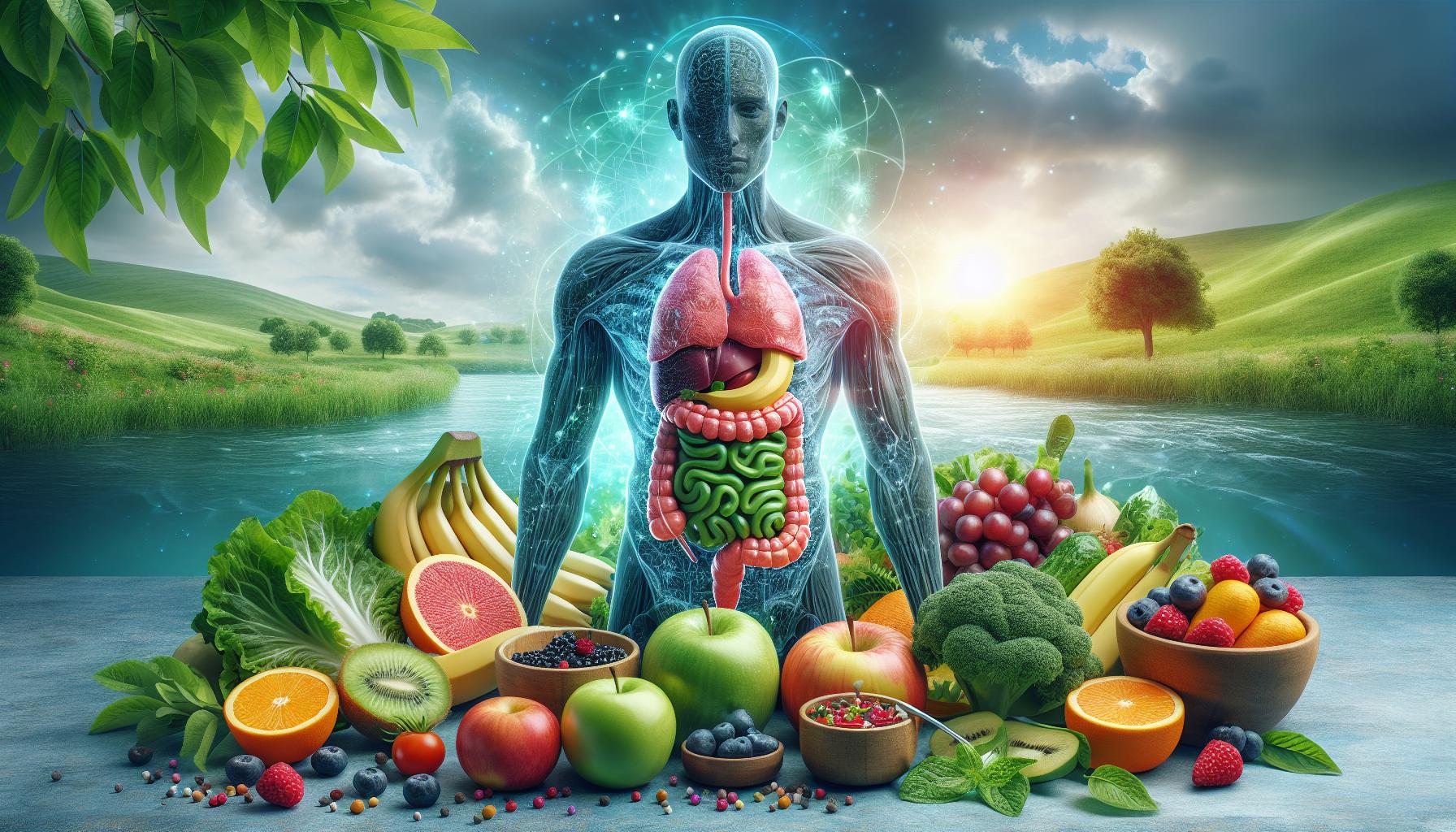The question that pops up frequently on the tongue of health enthusiasts and those on a detox journey is, “What to eat during a colon cleanse?” The direct and concise answer is to focus on light, easily digestible foods packed with fiber, like fresh fruits, vegetables, and whole grains. This not only aids the detoxification process but also bolsters the overall wellness of your internal ecosystem. However, diving a bit deeper into this, it’s also essential to consider maintaining hydration, limiting processed foods, and incorporating natural, organ-supporting herbs and spices. This article will explore these facets in detail, providing a roadmap to eating right while cleansing your colon.
Prioritizing Fiber-Filled Foods
When it comes to colon cleansing, think fiber-first. This workhorse of the food world is a prime player in not just keeping your colon clean but also ensuring the body’s optimal function. Incorporate fruits, like figs and plums, and vegetables, such as artichokes, beans, spinach, and broccoli, into your diet. These foods double as fiber-fanatics’ paradise and antioxidant agents, performing as your wellness warriors during a colon cleanse.
Whole Grains: A Fiber’s Best Friend
On top of all the fresh produce, let’s not forget about whole grains. Oats, quinoa, and brown rice offer an appetite-satisfying addition to your meals with their high-fiber content. They act as household helpers, effectively sweeping your colon clean of unwanted substances.
Healthy Hydration Habits
The mythical elixir in your colon cleanse journey is not something hard to find or pricey. It’s water, our health’s silent hero. Keeping hydrated is easier said than done, especially when life’s hustle and bustle distract our sipping schedule. You can increase your water intake by consuming herbal teas, clear broths, and fresh fruits, like watermelon and cucumber.
Importance of Hydrating Herbs and Spices
Herbs and spices like ginger, fennel, mint, and turmeric not only infuse enticing flavors to our meals but also support our colon cleanse. Incorporating these into your diet aids digestion, reduces inflammation, and bolsters your body’s natural detoxification process.
Limiting Processed and High-Fat Foods
While we’ve highlighted what to add to your plate, it’s equally crucial to know what to keep off your fork. Processed foods, such as ready meals, prepackaged snacks, and fast food items often contain low-grade ingredients, extenders, and additives, which could hinder your colon cleanse.
Clever Food Swap Ideas
Trade refined, processed grains for whole grains and swap out unhealthy processed snacks with homemade alternatives like hummus, guacamole, smoothies or a handful of nuts and seeds. Keep in mind, however, everything should be in moderation. Eating well during a colon cleanse is not about deprivation, but about balance and making healthier choices.
Conclusion
In essence, eating during a colon cleanse should focus on unprocessed, fiber-rich foods, plenty of hydration, and spice-infused meals, and limiting processed, high-fat foods. Embrace the opportunity to nurture your body, awaken your taste buds with healthy meals, and enhance your overall wellness in the journey to achieving a cleaner colon.
Frequently Asked Questions
1. Can I eat meat during a colon cleanse?
Yes, you can, but opt for lean meats like chicken or fish rather than red or processed meats.
2. Are dairy products safe during a colon cleanse?
Some people tolerate dairy well, while others experience discomfort. If you digest dairy products without issues, yogurt and kefir can support gut health during a colon cleanse.
3. Is it necessary to do fasting during a colon cleanse?
Not necessarily. Fasting could benefit some people but it’s not a mandatory practice. As always, personalized advice from a health professional is recommended.
4. Can I drink coffee or alcohol during a colon cleanse?
It’s best to limit or avoid caffeinated drinks and alcohol. Both can dehydrate you and may affect the efficacy of a colon cleanse.
5. Are supplements recommended during a colon cleanse?
Taking fiber supplements can be beneficial for some. However, getting nutrients directly from food is usually the healthier, more beneficial approach.


